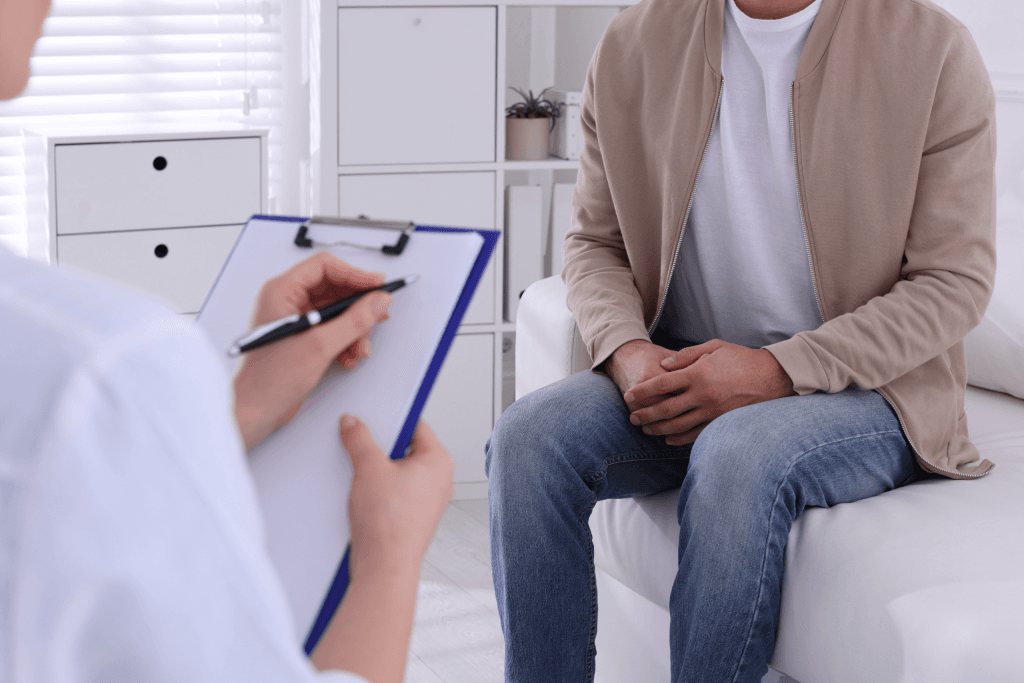Gonorrhoea: Common, Treatable, and Nothing to Be Ashamed Of
West Midlands
Gonorrhoea is a common sexually transmitted infection (STI) that can affect anyone who’s sexually active. The good news? It’s treatable. But if it’s left unchecked, it can lead to serious health problems.
The thing is, a lot of people don’t notice any symptoms. That’s why regular testing is so important—it’s a simple way to take care of yourself and the people you care about.
Remember, your health matters, and we’re here to help every step of the way.

Same-day Appointments
Fast, Discreet, Comprehensive testing
Gonorrhea is an STI caused by a bacterial infection that affects the genitals, rectum, and throat. It is most common among young people aged 15 to 24, but it can affect anyone who is sexually active. If untreated, it can lead to serious complications, particularly for women.
You can contract gonorrhea through sex with someone who has the infection. A pregnant person can also pass the infection to their baby during childbirth, which can cause health issues for the newborn.
The best way to avoid gonorrhea and other STIs is to abstain from sex. If you’re sexually active, you can lower your risk by:
- Being in a long-term, mutually monogamous relationship with a partner who has tested negative for STIs.
- Using condoms correctly every time you have sex.
Anyone who is sexually active can get gonorrhoea. Young people under 25 and those with new or multiple sexual partners are at a higher risk. Gay and bisexual men should be tested regularly, as should sexually active women, especially those with risk factors.
What are the steps?
1. Book an appointment
2. Get seen by a doctor
3. Do the test

Gonorrhoea Symptoms – What to Look Out For
Gonorrhoea is a common sexually transmitted infection (STI) that often causes no symptoms, meaning many people don’t realise they have it. When symptoms do occur, they can vary depending on sex and the site of infection.
Gonorrhoea Symptoms in Women
Pain or discomfort when passing urine
Increased or unusual vaginal discharge
Bleeding between periods or after sex
Gonorrhoea Symptoms in Men
Burning or stinging sensation when urinating
White, yellow, or green discharge from the penis
Pain or swelling in one or both testicles (less common)
Rectal Gonorrhoea (Men and Women)
Rectal discharge, itching, or soreness
Painful bowel movements
Rectal bleeding
Even if you feel completely well, gonorrhoea can still affect your health and be passed on to others. Regular STI testing is the most reliable way to protect yourself and your partners.
Gonorrhoea and pregnancy
If you’re pregnant, gonorrhoea can sometimes be passed to your baby during childbirth, which may lead to eye infections or other complications.
The good news is that testing and treatment during pregnancy can almost always prevent these problems. Taking care of your sexual health is an important part of taking care of your baby – and we’re here to support you every step of the way.
How Is Gonorrhoea Diagnosed?
Testing for gonorrhoea is quick, simple, and discreet. In most cases, it involves:
A urine test
A throat or rectal swab if you’ve had oral or anal sex
If you’d like to check costs before booking, our transparent pricing is available here
Gonorrhoea & Chlamydia Test
We offer a combined Gonorrhoea and Chlamydia test using highly sensitive PCR technology. These two infections often occur together, so testing for both ensures accurate detection.
✔ Simple urine sample
✔ Same-day results
✔ Fast, discreet, and reliable
You may also wish to consider a broader STI screen, which includes HIV and other common infections. Learn more here.
Is there a cure for gonorrhoea?
Yes, gonorrhoea can be cured with the right antibiotics.
In some cases, gonorrhoea may be harder to treat due to drug-resistant strains. If your symptoms stick around after treatment, don’t worry – just check back in with your doctor. We’re here to make sure you get the care you need to feel your best.
When can I have sex again after treatment?
You should wait at least 7 days after completing treatment before having sex again. All sexual partners should be treated, and everyone should be symptom-free before resuming sexual activity.
Because reinfection can occur, repeat testing around 3 months later is recommended.
Complications of untreated gonorrhoea
Without treatment, gonorrhoea can lead to serious health problems.
In Women
Pelvic inflammatory disease (PID)
Increased risk of infertility
Ectopic pregnancy
Chronic pelvic pain
In Men
Painful swelling of the tubes around the testicles
Reduced fertility in some cases
In Rare Cases
Spread of infection to the blood or joints, which can be life-threatening
Untreated gonorrhoea also increases the risk of catching or passing on HIV. You can read more about HIV testing and early detection here.
Book your STi test now!
If you’re concerned about gonorrhoea or have had a recent sexual encounter, our team at OneMedicine is here to help with confidential testing and treatment. Early detection and treatment are key to preventing complications and protecting your health.
















